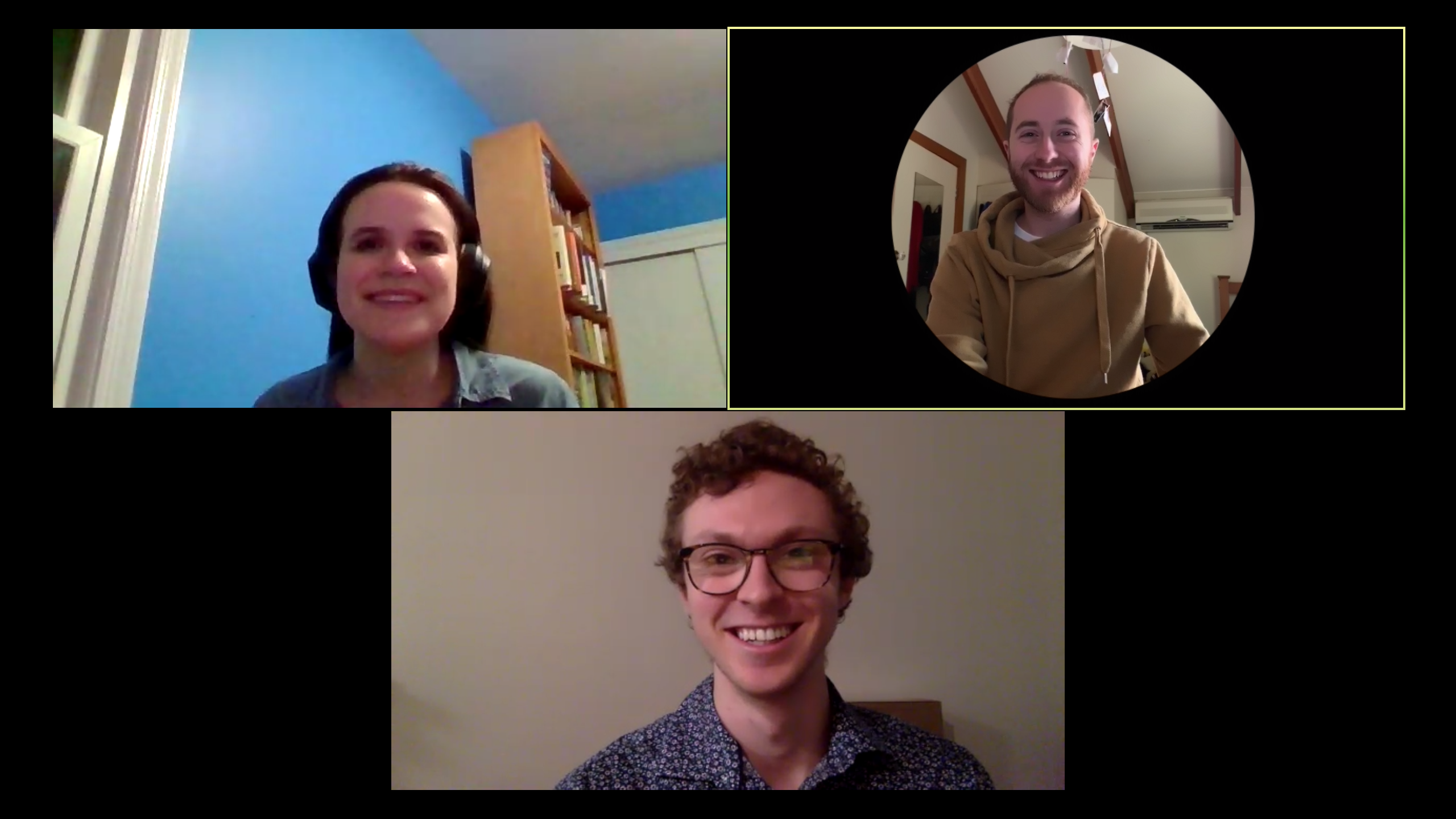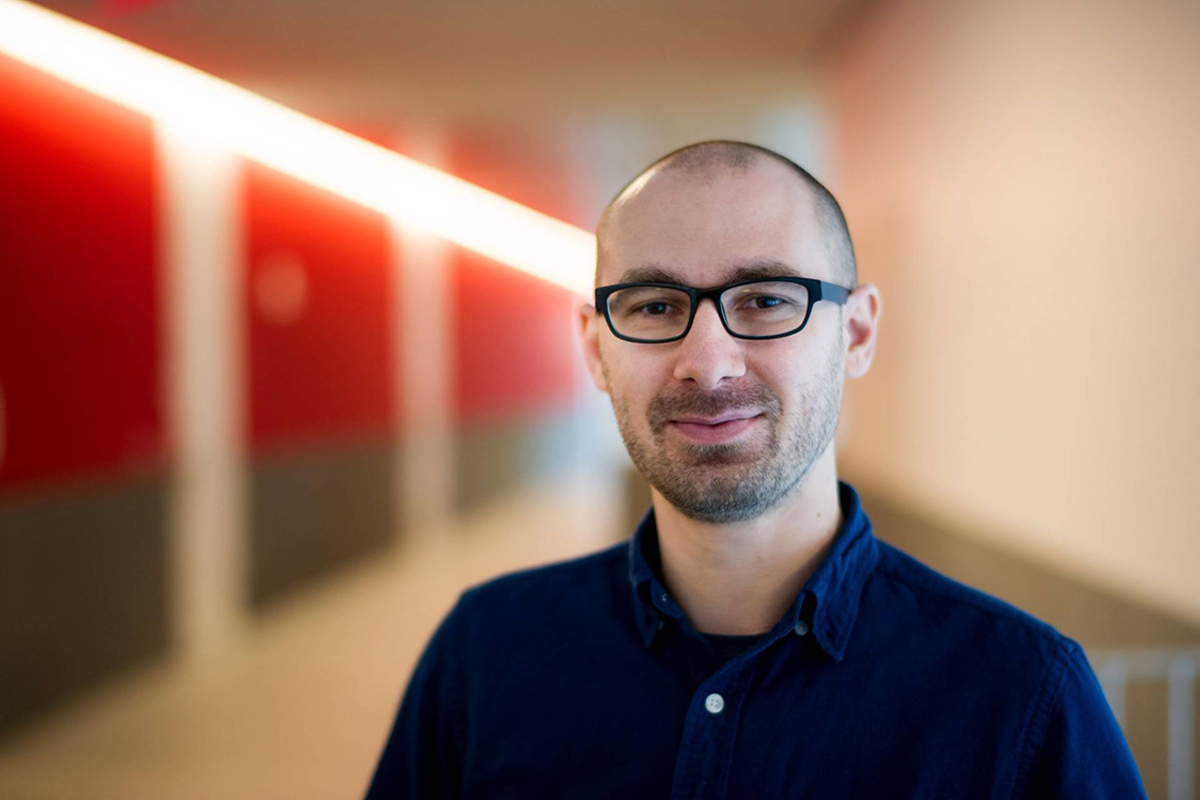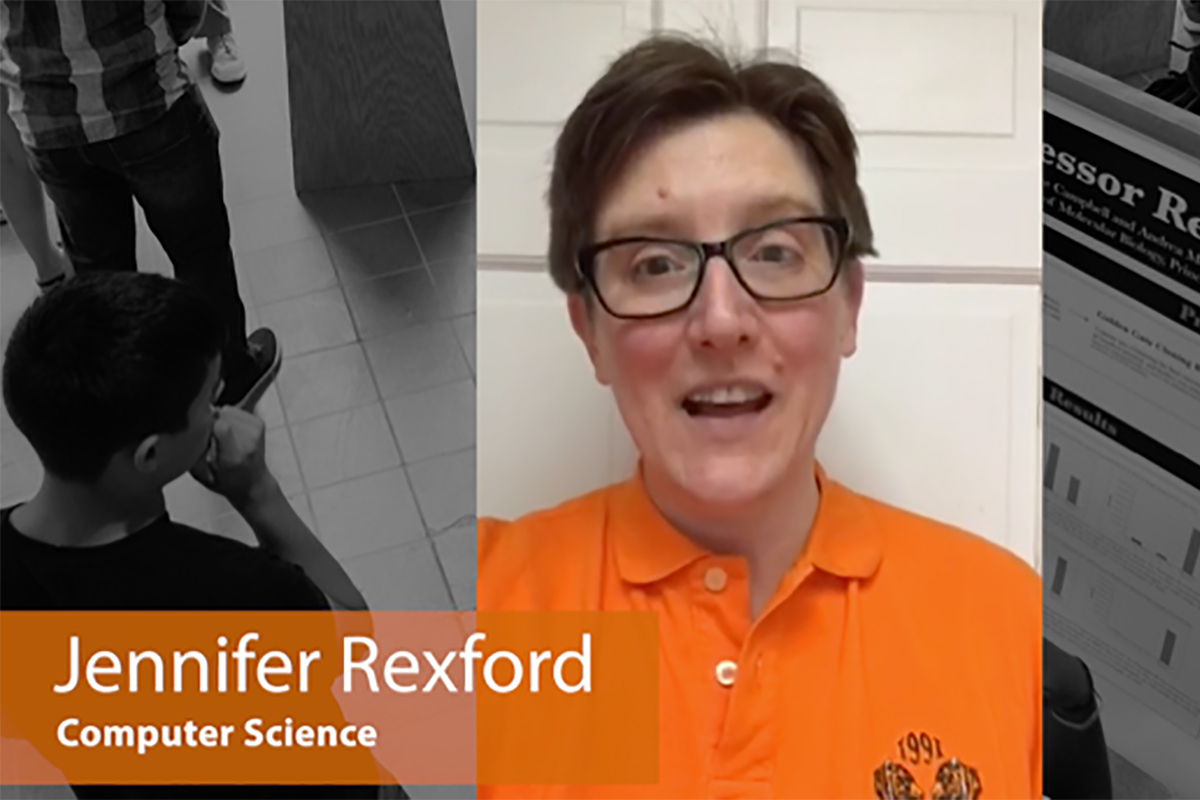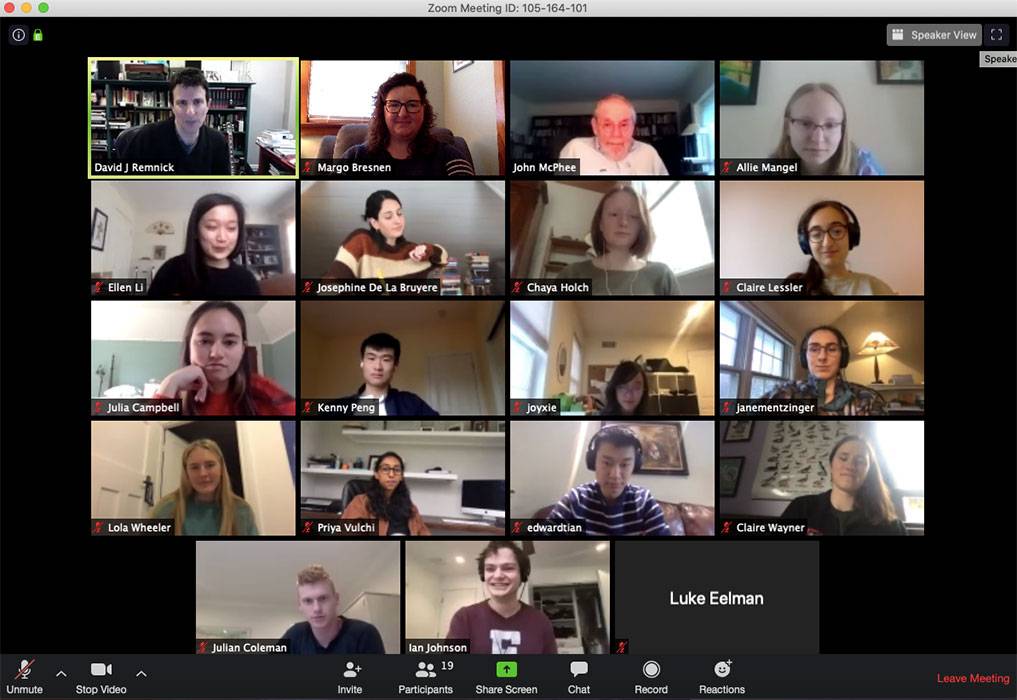
Before the COVID-19 outbreak, a group of students and faculty gathered on Friday mornings in Sherrerd Hall to discuss teaching and education, particularly the use of technology to enhance the learning experience. Their reading group was titled “TechEd: Pedagogy, Policy and Potpourri,” and on a good day, maybe 10 people would show up and participate in the discussion. Today, with most schools and universities adopting remote learning over the internet, there’s not a classroom or hall on campus theoretically large enough to hold all the educators eager to join TechEd’s conversation.
Anne Kohlbrenner and Ross Teixeira, first-year Ph.D. students at the Center for Information Technology Policy (CITP), co-founded the reading group last fall, and when the University announced plans for social distancing and remote learning in early March, they looked for ways to keep the dialogue going.
“Initially, we were just talking about holding our next TechEd gathering online over Zoom,” said Kohlbrenner. “And then Ross said, ‘I’m seeing all these faculty on Twitter who are freaking out about shifting their classes online. Maybe we can open our group up to more people and provide a virtual place for them to help each other deal with the transition that we’re all suddenly going through.’”
The response was incredible. Announced by tweet with little fanfare, their enhanced “reading group” — rechristened Remote Academia — became a Slack workspace serving as a hub of conversation and connectivity for the academic community, as well as a curated Google Doc of resources for online teaching. Since its launch, more than 3,000 users from more than 600 institutions have joined to learn online teaching strategies and share their experiences.
“It just started blowing up, and people started joining it naturally,” Teixeira said. “People began inviting colleagues from other institutions.”
The community, which is free, got a boost when Slack, the popular online collaboration tool, recognized Remote Academia’s potential and worked to support it, including granting early access to a new feature to help mold the user experience. Kohlbrenner and Texieira enlisted the help of their friend and research colleague Shaanan Cohney, a postdoctoral research associate at CITP, to help manage the group and create a website.
“Ross had been asking me to test some things on the Slack he was making,” Cohney said. “I told him I’d love to get involved: ‘Let’s see what we can turn this into.’”
The trio, working remotely in Virginia, New Jersey and Australia during the quarantine period, have continued to upgrade the community. Visitors to the Slack workspace can navigate specific channels that are dedicated to every aspect of the online teaching experience, from adapting various classroom structures (lectures, labs, assignments, exams) for online formats, to supporting equality for students with varying qualities of home equipment and internet connectivity. The three of them moderate the workspace and occasionally host Zoom chats that are extensions of their in-person reading group discussions.
But the beauty of the community is how it’s grown organically. “We didn’t want it to be us facilitating every discussion and sort of saying, ‘Here’s something you should do,’” Kohlbrenner said. “We had hoped that people would just start sharing things, throwing ideas back and forth. And that’s happened. So that’s been really cool to see.”
“What they’ve built is very much in the Princeton spirit of service to our community and to the academic community more broadly,” said Jonathan Mayer, assistant professor of computer science and public affairs, and the students’ CITP advisor. “They spotted that the transition to online pedagogy was going to be a massive problem, and they started sharing their knowledge and experience as quickly as possible. As a teacher, I haven’t seen another resource quite like Remote Academia.”
Though all three students are juggling their own graduate research, they expect to spend more time expanding and fine-tuning Remote Academia this summer and into the fall. The community was built as an impromptu “crisis management worksite,” according to Cohney, for faculty who needed immediate answers about online education. Now that teachers have the summer months to plan an online curriculum, there might be even more interest in an education resource that has collected and curated a broad spectrum of teaching experiences, both dos and don’ts.
“Our goal in getting this set up as fast as possible in the spring was to help those people who needed this information now and they didn’t know what to do — we just needed to build the platform so people could start sharing,” Teixeira said. “But I think as it goes forward, we want to really help people come up with a common set of recommendations, so that we really can make online learning as beneficial as possible for students, knowing that it could be this way for some time.”




